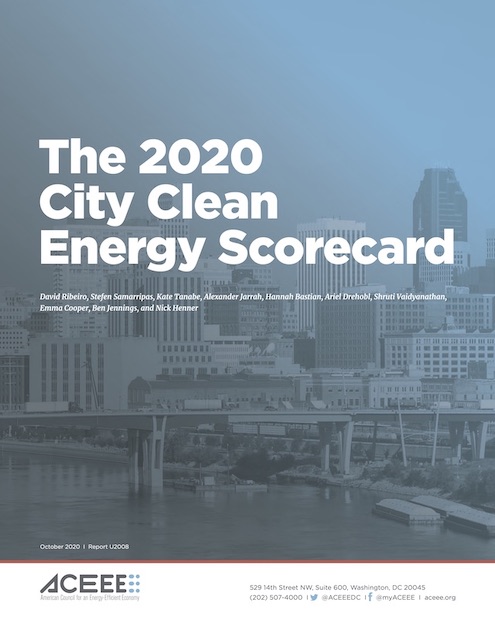
Measuring Climate Intentions, Not Results
by Randall O’Toole, The AntiPlanner, October4 21, 2020
If your city wants to be lauded for doing the most to reduce climate change, it needs to impose as heavy-handed restrictions as possible on every aspect of your daily life. It doesn’t matter whether those restrictions actually do anything to reduce greenhouse gas emissions; all that matters is that they be as restrictive as possible.
That’s the conclusion reached from reviewing a Clean City Energy Scorecard report from a group called the American Council for an Energy-Efficient Economy. The report “scores 100 U.S. cities on their efforts to achieve a clean energy future by improving energy efficiency and scaling up renewable energy.” New York is rated number one and Boston and Seattle are tied for number two.
The problem is that none of these cities have actually done much to reduce greenhouse gases. Instead, the first 134 pages of the report ranks cities by whether they have imposed strict building codes, emphasized transit over driving (because “everyone knows” transit is more energy-efficient than cars), and included social justice programs in their energy-saving programs.
Only when the reader gets to appendix E, starting on page 135, does the report reveal whether any of these policies have actually reduced greenhouse gas emissions. Did the city make progress towards its greenhouse-gas-reduction goal? the report asks. Did it meet its goal to reduce driving? Did it meet its goal to get people out of their cars and onto transit?
In the case of Seattle, the Washington Policy Center discovered, the answer was “no” (or, to be precise, zero) in every case. Seattle met none of its goals and, among the 100 cities, is dead last in actually achieving any reductions in climate emissions. Yet the report ranked it tied for number two as having the best policies in the country.
I’ve previously discussed how government planners judge one another based on their intentions rather than their results. This seems to be an inherent flaw of socialism and was a major reason for the downfall of the Soviet Union. To get our economy moving again, we need to turn away from this dangerous mode of thinking.
---30---
2018: Lawsuits Close in on Hawaii’s Largest Carbon Credit Scheme
2019: Report: Hawaii Greenhouse Gas Emissions Drop After Aviation Emissions Reclassified as 'International'
2020: Moving the Smokestack: How Clean is Your Electric Vehicle?
2020: Moving the Smokestack: Blue Planet Phonies Exposed